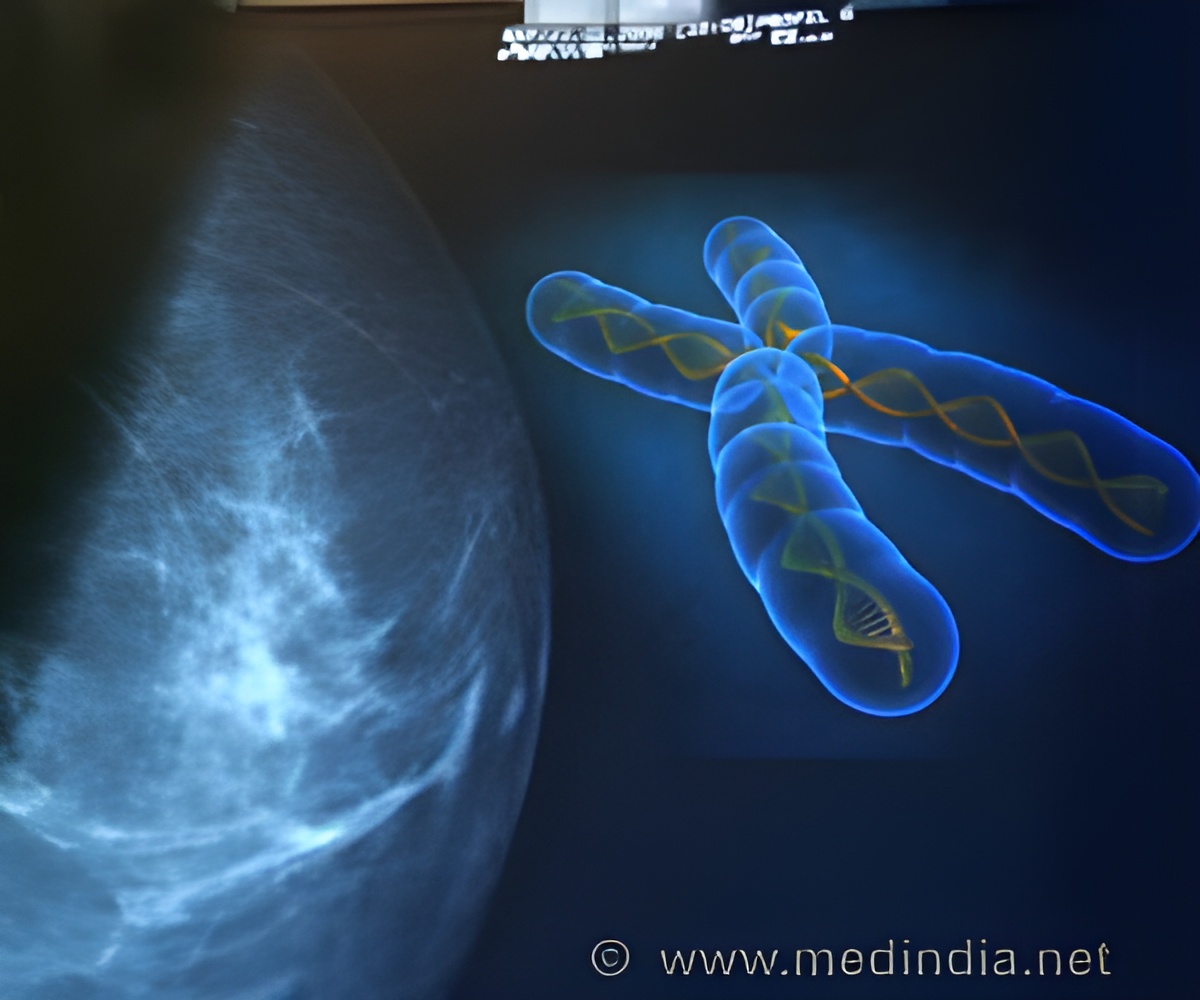Women who test negative for the family-specific BRCA2 mutations are still at greater risk for developing breast cancer, research suggests.

"We found that women who test negative for family-specific BRCA2 mutations have more than four times the risk for developing breast cancer than the general population," said Gareth R. Evans, M.B.B.S., M.D., M.R.C.P., F.R.C.P., honorary professor of medical genetics and cancer epidemiology at the Manchester Academic Health Science Center at the University of Manchester in the United Kingdom. "We also found that any increased risk for breast cancer is largely limited to BRCA2 families with strong family history and other genetic factors.
"It is likely that these women inherit genetic factors other than BRCA-related genes that increase their breast cancer risk," he explained. "About 77 single nucleotide polymorphisms [SNPs-genetic variations that can help track the inheritance of disease genes within families] are linked to breast cancer risk. Identification of additional SNPs is necessary to understand why some of the BRCA-negative women from BRCA families are at higher risk."
The authors note that specialists should use caution when stating that a woman''s breast cancer risk is the same as that of the general population following a negative test, because it may not be true for some women who come from BRCA2 families with a strong family history.
Evans and colleagues used data from the M6-Inherited Cancer in England study, which has screened families of individuals with breast and/or ovarian cancer for mutations in BRCA1 and 2 since 1996. Details on affected individuals, and all tested and untested relatives, were entered into a Filemaker Pro-7 database. From 807 BRCA families, the researchers identified 49 women who tested negative for the family-specific BRCA mutation, but subsequently developed breast cancer. The researchers called these women "phenocopies."
Of the 49 phenocopies identified, 22 were among 279 women who tested negative from BRCA1 families, and 27 were among 251 women who tested negative from BRCA2 families. When the researchers stratified the phenocopies based on their age (30-39, 40-49, 50-59, and 69-80), they found that in each age range there were about twice as many cases of breast cancer as would have been expected from the general population.
They found the O/E for phenocopies from BRCA1 families was not substantially higher than that of the general population; however, the O/E for phenocopies from BRCA2 families was 4.57, leading them to conclude that the more than fourfold increased risk for breast cancer among BRCA-negative women is largely limited to BRCA-negative women from BRCA2 families.
This study was funded by the National Institute for Health Research. The authors declare no conflict of interest.
Follow the AACR on Twitter: >@AACR
Follow the AACR on Facebook: www.facebook.com/aacr.org
About the American Association for Cancer Research
Founded in 1907, the American Association for Cancer Research (AACR) is the world''s oldest and largest professional organization dedicated to advancing cancer research and its mission to prevent and cure cancer. AACR membership includes more than 34,000 laboratory, translational, and clinical researchers; population scientists; other health care professionals; and cancer advocates residing in more than 90 countries. The AACR marshals the full spectrum of expertise of the cancer community to accelerate progress in the prevention, biology, diagnosis, and treatment of cancer by annually convening more than 20 conferences and educational workshops, the largest of which is the AACR Annual Meeting with more than 18,000 attendees. In addition, the AACR publishes eight peer-reviewed scientific journals and a magazine for cancer survivors, patients, and their caregivers. The AACR funds meritorious research directly as well as in cooperation with numerous cancer organizations. As the scientific partner of Stand Up To Cancer, the AACR provides expert peer review, grants administration, and scientific oversight of team science and individual grants in cancer research that have the potential for near-term patient benefit. The AACR actively communicates with legislators and policymakers about the value of cancer research and related biomedical science in saving lives from cancer. For more information about the AACR, visit www.AACR.org.
Source-Newswise
 MEDINDIA
MEDINDIA




 Email
Email










